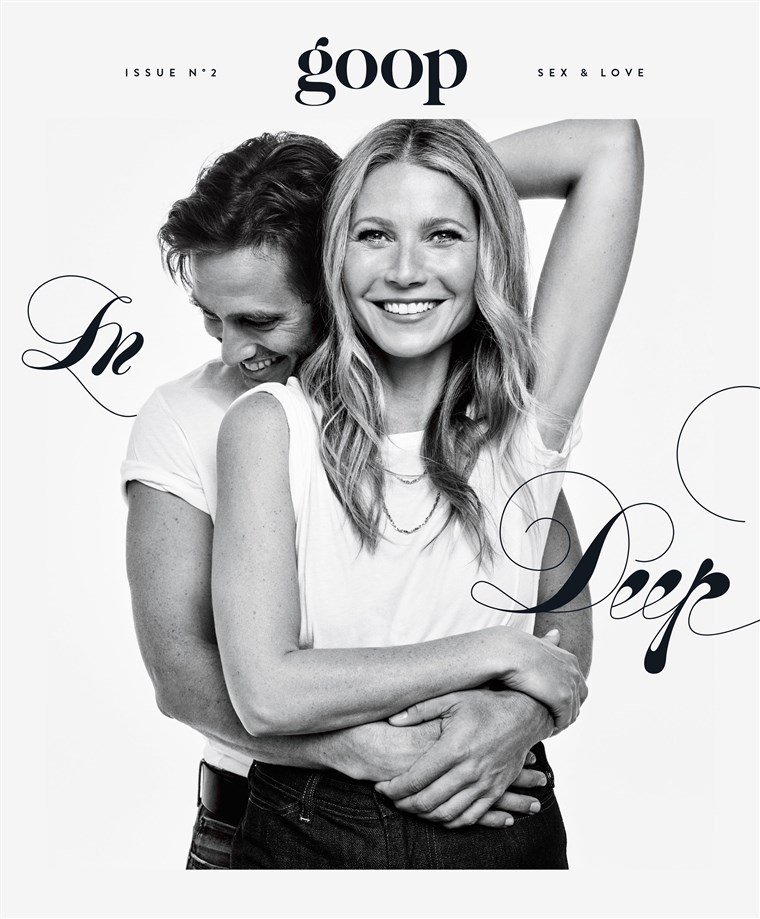Gwyneth Paltrow married for the second time, to Brad Falchuk, this past week, after her 11-year marriage to Chris Martin famously consciously uncoupled in 2014.
Paltrow is now 46; this marriage won’t be about having children together — she has two with Martin and Falchuk, 47, has two from his 10-year marriage to Suzanne Bukinik, which ended in 2013 — and they’re content with that. 
Marriage isn’t always about having children.
So why marry at midlife?
Well, marriage brings a lot of perks and protections with it, so there’s that.
That may not be as much of an issue for Paltrow and Falchuk, as they’re multi-
millionaires. But, as Paltrow says, she’s marrying at midlife “not only because I believe I have found the man I was meant to be with, but because I have accepted the soul-stretching, pattern-breaking opportunities that (terrifyingly) are made possible by intimacy.”
As much as people tend to hate on Paltrow, she actually is modeling something all of us in relationships, romantic or not, would be wise to explore: it seems as if she’s entering into this marriage in a healthier way than she did with Martin, and looking forward to growing within it:
I had two typical types of relationships. One where I was constantly chasing and trying to win someone over, and one where I was put off by the person’s capacity for the relationship — and those relationships were very short-lived.”
A challenged Gwyneth Paltrow
So what’s different now?
For one, Falchuk is a different man than Martin, and she’s a different woman with him. And it’s forcing her to be a bit uncomfortable, willingly, in their relationship:
For the first time, I feel like I’m in an adult relationship that is sometimes very uncomfortable — because he sort of demands a certain level of intimacy and communication that I haven’t been held to before.”
My guess is that, just as important, Paltrow and Martin’s conscious uncoupling not only benefited their kids, but also helped her focus on what’s important in relationships, even if you’re no longer romantically involved. That’s the “conscious” part.
Co-parenting hasn’t always been easy, Paltrow admits, but they were committed to their children, and so they had to work at being better. “And it’s been hard, and you know, like, we’ve gone through really difficult times with it but we’ve always said these children are our priority,” she says.
Hard, sure — divorcing with children is challenging, but then again aren’t all romantic relationships challenging at times, too?
The perks of a conscious uncoupling
The beauty of conscious uncoupling, as founder and marriage and family therapist Katherine Woodward Thomas describes it, is that it offers a way to end a relationship with kindness and generosity, and with genuine efforts to do the right things for the right reasons.
Clearly, that helps people become more aware and gentler to their former partner and to themselves. And, that kind of commitment to working through things even — especially — when they’re hard, help make you a better person and partner.
Honestly, who doesn’t want that?
Interested in becoming a better partner in your marriage? (Of course you do!) Find The New I Do: Reshaping Marriage for Skeptics, Realists and Rebels (Seal Press) at your indie bookstore or on Amazon; follow us on Twitter and like us on Facebook.
















